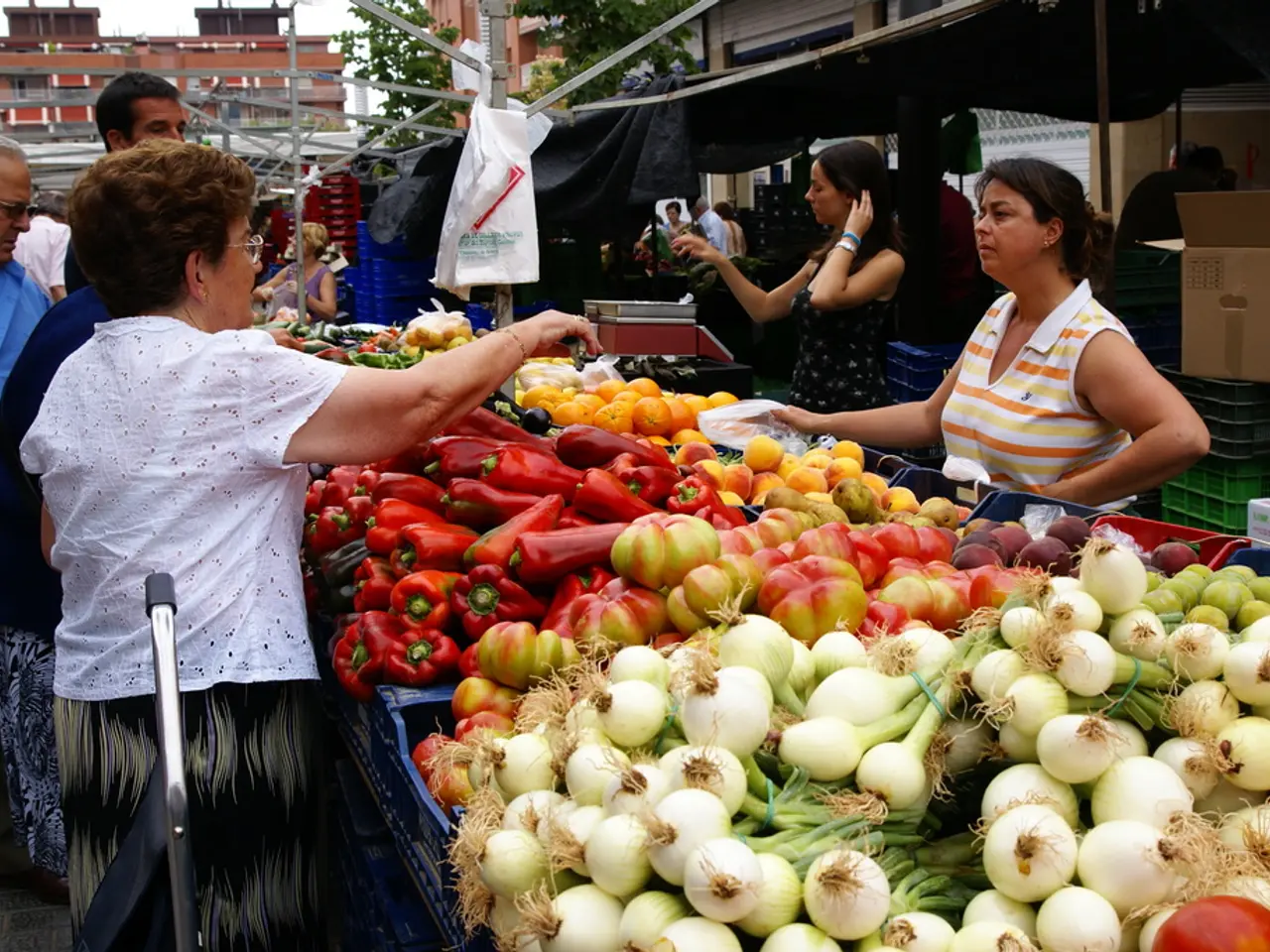Limitations in recycling due to affordability of virgin plastic
The world is gearing up for a significant discussion on plastic pollution as negotiators convene in Switzerland to draft a global treaty. This treaty, aimed at ending plastic pollution, is under close scrutiny by various industries and environmental groups alike.
The European Union (EU) has already taken steps in this direction with broad plastic and packaging waste regulations. These regulations are designed to promote recycling and reduce non-recycled plastic waste. However, the economics of plastic recycling pose a challenge.
In the UK, the cost of recycled materials is often higher than cheaper, non-verified imports. This situation, coupled with relatively little oversight and enforcement, has raised concerns that significant portions of these materials may not meet the criteria to be classed as recycled, yet are dodging the UK's plastic tax.
The issue is further complicated by the fact that large volumes of UK plastic waste are exported for processing abroad. The exact proportion of this waste that is actually recycled remains unclear.
Biffa's closure of a plant in Sunderland and Viridor's decommissioning of sites in Sunderland and Rochester, Kent, are symptomatic of the challenges faced by the recycling industry. As long as virgin plastic remains cheap and abundant, recyclates struggle to compete.
To address this, the coalition pushing for the treaty is advocating for a focus on improving collection and recycling of plastic waste. They argue that for a more circular plastic economy, there must be consistent and economic supply and demand for recycled materials.
However, a surprising minority coalition, including major plastic-producing and exporting nations such as the United States, China, India, and Saudi Arabia, is opposing restrictions on virgin plastic production and regulation of certain chemicals in the global plastic waste agreement negotiations. They also do not want the treaty to restrict the use of certain chemicals within plastic production that increase hazard.
Moreover, they do not want the treaty to include commitments to reduce production of virgin plastic materials. Favourable oil prices and global oversupply of virgin plastic materials make it hard for high-quality recycled materials to compete.
The UK has implemented taxes intended to penalise businesses if their plastic packaging incorporates less than 30% recycled materials. However, this measure may not be enough to tip the scales in favour of recyclates, especially when faced with cheaper, non-verified imports.
As the negotiations progress, it will be interesting to see how these opposing forces balance the need for a sustainable plastic economy with the economic interests of the plastic industry.
Read also:
- Peptide YY (PYY): Exploring its Role in Appetite Suppression, Intestinal Health, and Cognitive Links
- Toddler Health: Rotavirus Signs, Origins, and Potential Complications
- Digestive issues and heart discomfort: Root causes and associated health conditions
- House Infernos: Deadly Hazards Surpassing the Flames




